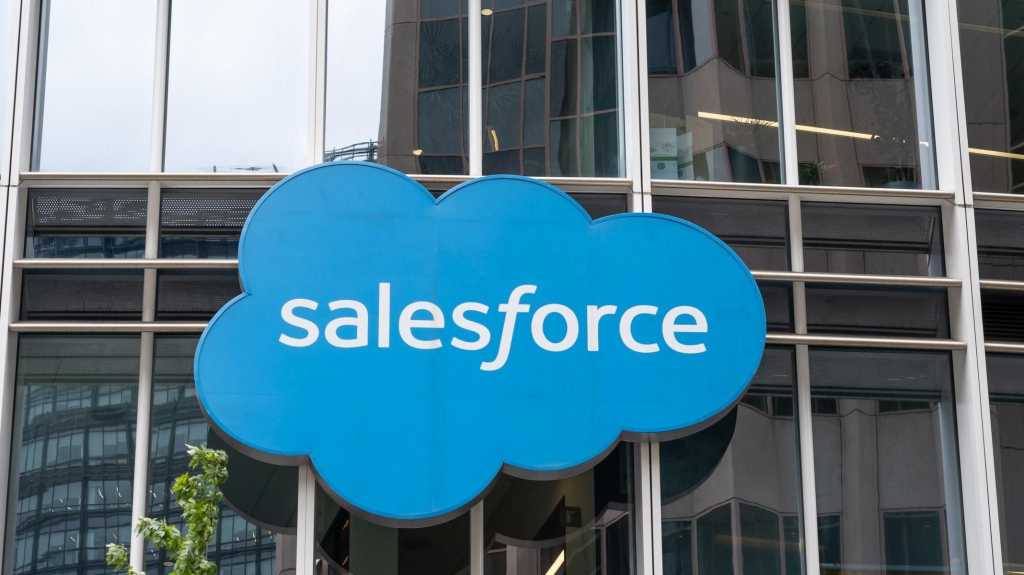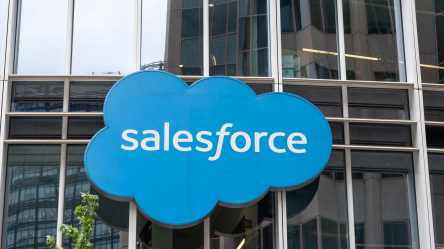Salesforce has unveiled new innovations for the Salesforce Platform, Data Cloud, MuleSoft, and Tableau in its bid to become the central operating system for the enterprise AI ecosystem.

As Salesforce pushes further into agentic AI, its aim is to evolve Salesforce Platform from an application for building AI to a foundational operating system for enterprise AI ecosystems. The CRM giant took a step toward that vision today, announcing innovations across the Salesforce Platform, Data Cloud, MuleSoft, and Tableau.
New capabilities include a content indexing pipeline in Data Cloud to help AI agents interpret unstructured content — such as contracts, diagrams, and tables — and Tableau Semantics, an AI-powered semantic layer that is natively integrated with Data Cloud and intends to help agents translate raw data into business language. Through its Semantic Data Model (SDM), Salesforce also aims to create a universal semantic interchange with data platforms from vendors such as Snowflake and dbt Labs to unify cross-cloud data and metadata.
Salesforce is also tackling “agent sprawl” via MuleSoft Agent Fabric, which provides a single place to register, orchestrate, and govern AI agents regardless of where they were built. AI-powered security capabilities are also being embedded across the Salesforce Platform, including integrations with CrowdStrike’s Falcon Shield. These security capabilities are meant to make proactive security threat identification and compliance management part of an agentic enterprise’s operating mesh.
Trusted AI Foundation
Combined with the existing Einstein Trust Layer — a set of features and guardrails for the Salesforce ecosystem that masks customer data from external LLMs, warns users of potentially toxic prompts or responses, and keeps an audit trail — the new innovations form what Salesforce calls its Trusted AI Foundation. That foundation provides the “essential scaffolding” for the agentic enterprise, enabling agents to operate autonomously, accurately, and securely, according to the company.
“Your AI is only as good as your data, and the AI revolution is a data revolution,” said Rahul Auradkar, EVP and GM of Unified Data Services, Data Cloud, and Einstein at Salesforce. “It’s about bringing more context to structured and unstructured data, and that context comes from multiple different sources of fragmented data. It is about unlocking those fragments of data and bringing context through a deeply unified platform.”
Autonomous AI agents need to be able to access very complex unstructured documents with elements like images, tables, and charts, then process those unstructured documents and connect that data with harmonized metadata so that it can be used for automation and analytics.
The Trusted AI Foundation, Auradkar says, provides an end-to-end framework for context, control, and compliance in the agentic enterprise. And if regulators greenlight Salesforce’s $8 billion acquisition of Informatica, the plan is to integrate Informatica’s data catalog, data governance, integration, and master data management (MDM) capabilities with the Salesforce Platform to extend its reach beyond CRM to the entire enterprise.
“Our customers were asking us to provide a similar view that we have of metadata not just in the CRM context, the customer context, but also the enterprise context,” Auradkar explains. “We see a deep integration.”
Auradkar says the Trusted AI Foundation comprises three pillars that are required by an agentic enterprise to enable agents to operate autonomously, accurately, and securely: context and accuracy; built-in trust, security, and compliance; and an open and unified platform.
- Context and accuracy: Agentic enterprises require that the outputs of their AI agents are accurate and grounded in reality. All corporate knowledge, from internal documents to customer history, needs to be unified and accessible to eliminate hallucinations.
- Built-in trust, security, and compliance: Agentic enterprises need to maintain complete visibility and control when they deploy agents. Trust and security need to be built directly into the operating fabric of agents to guarantee all their actions are aligned with corporate policies and regulatory mandates.
- Open and unified platform: An open and unified platform is required by agentic enterprises to avoid vendor lock-in and ensure agents can access data wherever it resides.









